A new space for the Cochrane health team
- News
When Calgary Foothills Primary Care Network (PCN) was building its new location at UXBorough, we created dedicated spaces and programs for Indigenous patients and visitors who prefer traditional ways of healing — such as a smudge room.
Across Canada’s history, health care for Indigenous patients has been rooted in systemic inequities and discrimination. Calgary Foothills PCN is working to acknowledge and reconcile the past by providing traditional healing as part of our care. For instance, the PCN has an Indigenous medicine garden, ensures staff are trained on Indigenous cultural safety and offers smudging to anyone who requests it.
The PCN’s smudge room at our Calgary location is a safe and welcoming space that supports the emotional, spiritual, mental and physical well-being of Indigenous patients.
Beth Finn, Cree Métis and PCN Clinical Indigenous Liaison, guided the room’s thoughtful design. Take a short tour of the room to learn how it puts patients’ needs first.
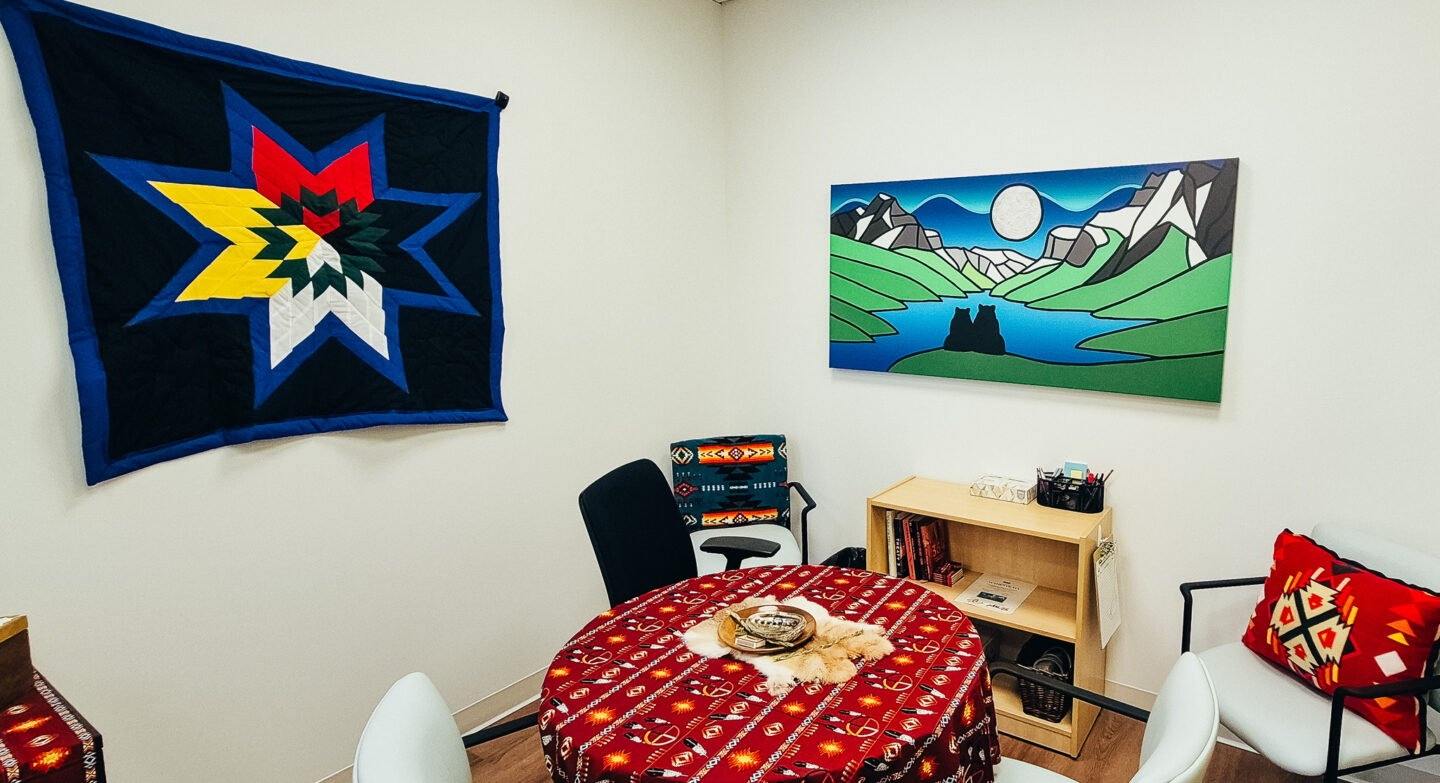
On the building’s sixth floor, the PCN’s smudge room looks noticeably vibrant compared to its office-like surroundings.
“We wanted it to communicate cultural safety and make Indigenous patients feel welcomed, valued and respected,” says Finn. “Accessing health care for these patients can often be stressful, but this space will help them feel calm and grounded.”
A special ventilation system is built into the room, as well as the PCN’s largest meeting room, which means smudging can happen safely on site.
“As soon as you walk in you can smell the medicines we use for smudging,” Finn adds.
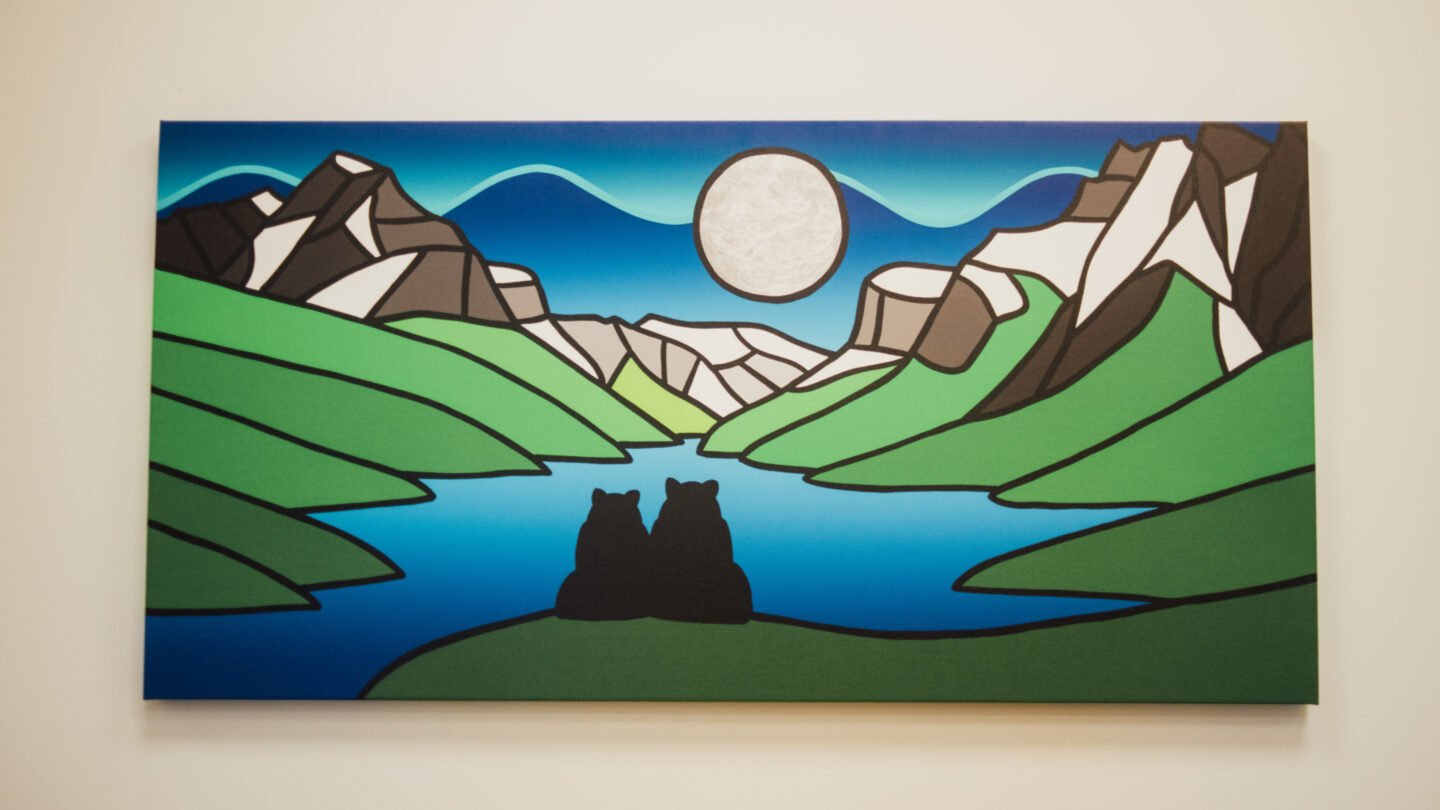
Visitors are quick to notice the large, bright and colourful painting on the wall opposite the entrance. Titled Canoodling Bears By the Dancing Northern Lights, this artwork was created by Jason Carter, one of Canada’s most accomplished contemporary Indigenous visual artists. Carter is from the Little Red River Cree Nation in Alberta.
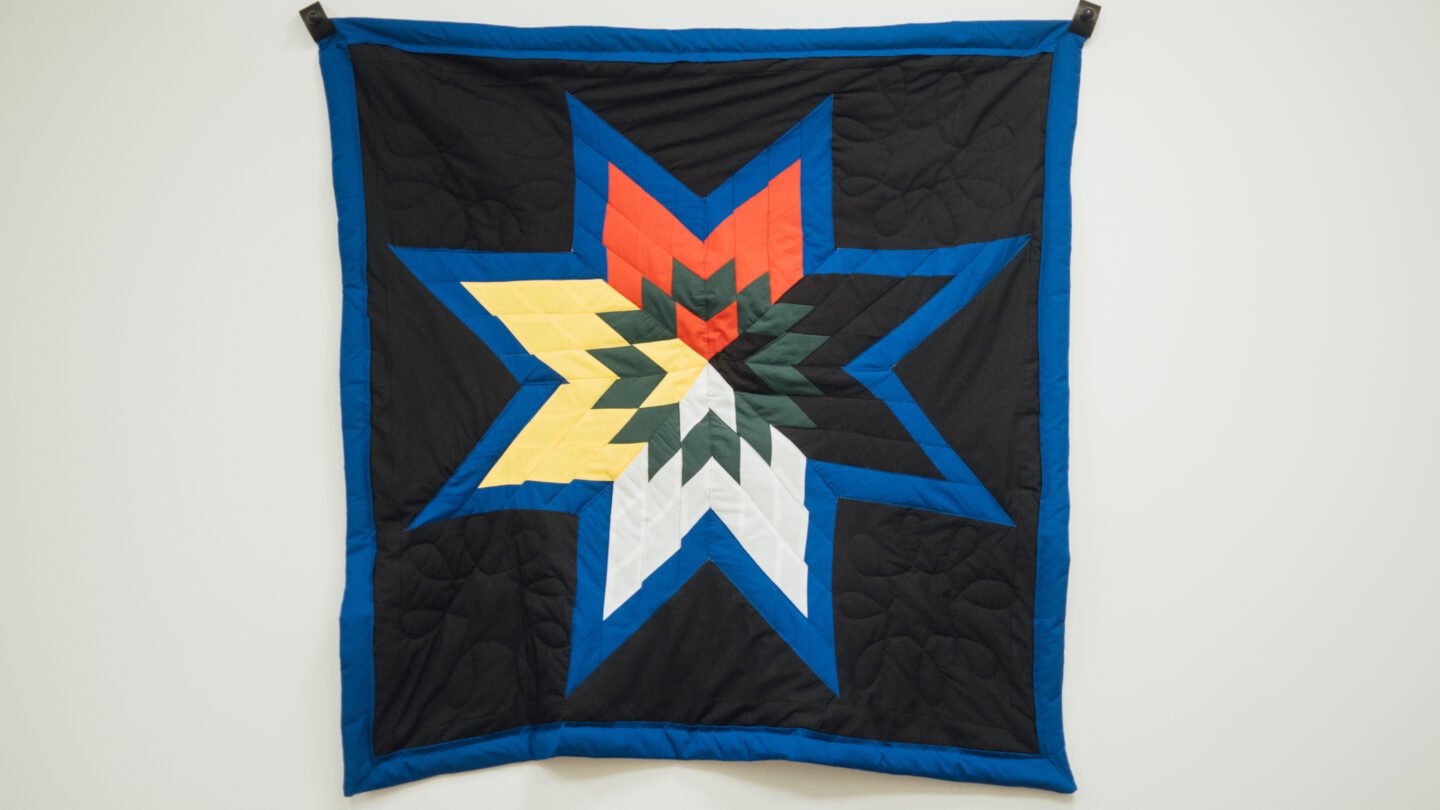
On the adjacent wall, visitors see a beautiful handmade blanket donned with a star, created by Ellie Star Blankets. The blanket was sewn by Eleanor Crane, a member of the Tsuutʼina Nation and dedicated healthcare professional.
“Star blankets are often gifted to mark important life events, like graduation or a new baby. When the PCN moved into its new space I felt it was important to celebrate,” Finn explains. “The blanket represents the wellness journey and emotional healing. The star is a symbol of protection and ceremony — it’s a perfect fit for a primary care space.”
The design uses all four colours of the medicine wheel. It represents balance, harmony and unity; the different aspects and stages of life; and the interconnectedness of all things — people, nature, spirits and the universe.
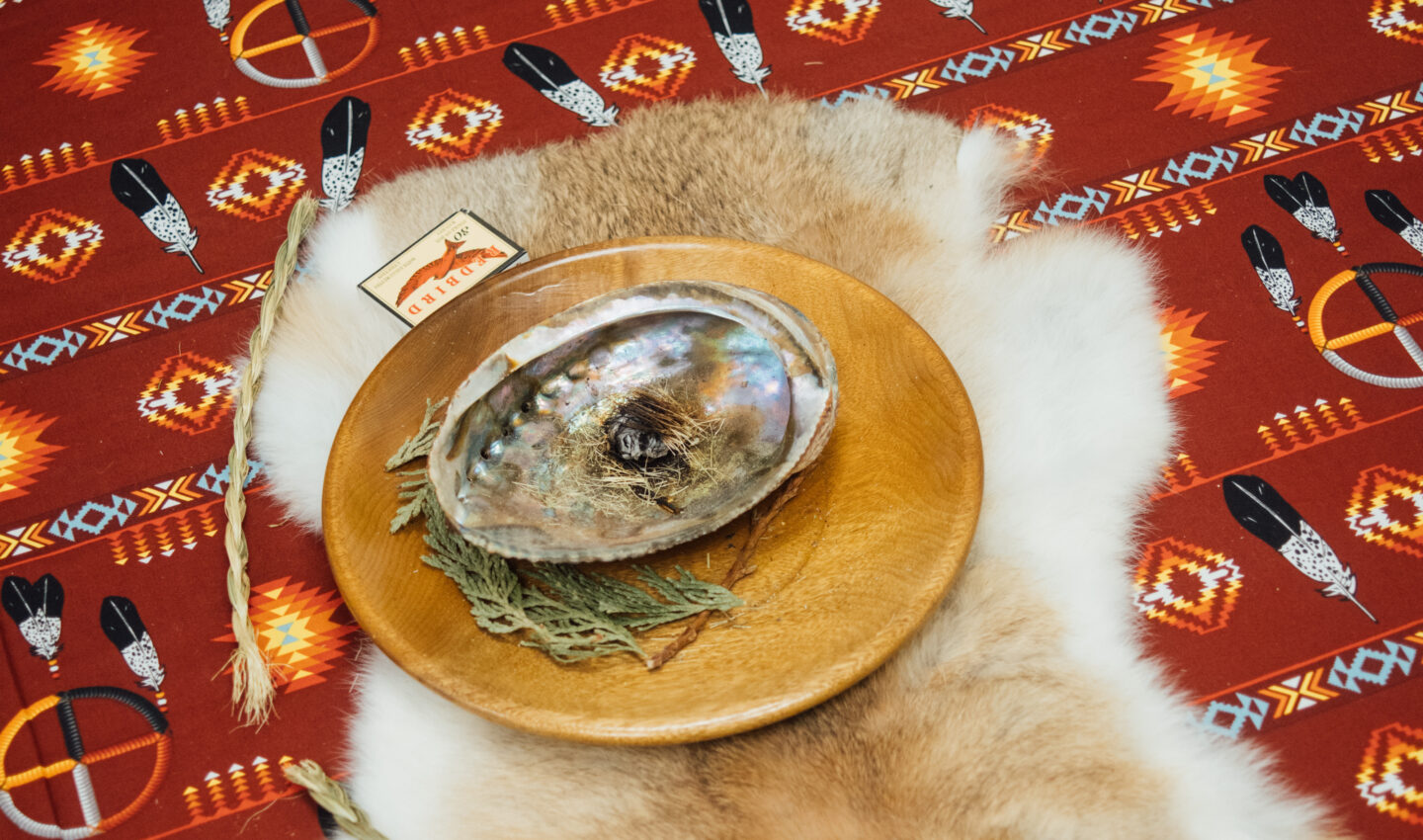
In the middle of the room is a round table, which Finn says symbolizes communication, inclusivity and unity. It helps everyone feel equal — no one is in a position of power. This is where people can talk, share stories and take part in smudging.
“The rabbit fur on the table represents tradition and connection to the natural world,” says Finn. “Canada was built on the fur trade and it was essential to survival both physically and later economically.”
She adds petting soft fur may have a calming effect and lower stress levels.
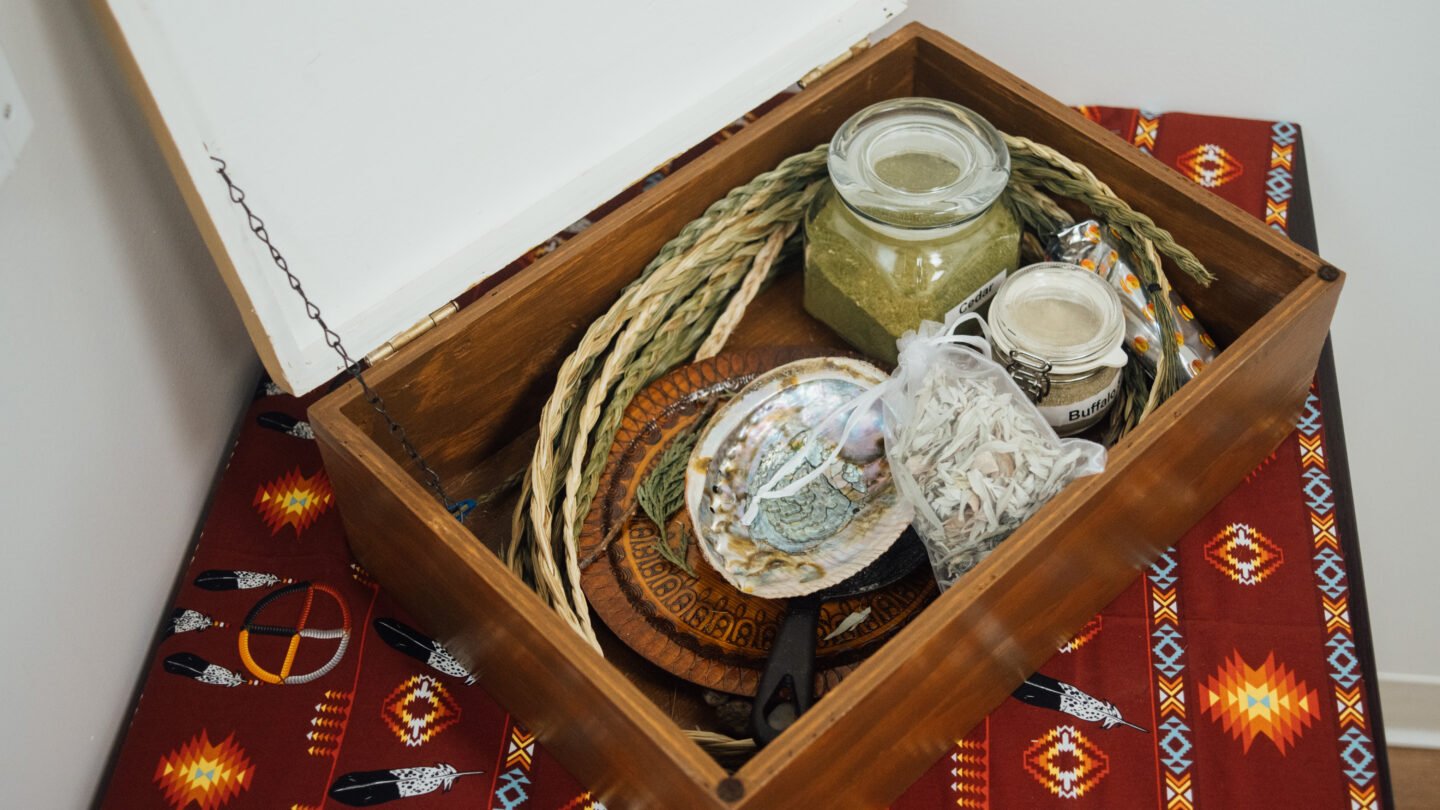
Now for the main event — smudging.
“Smudging is like taking a spiritual shower,” says Finn. “It helps people let go of negative feelings and thoughts and become grounded.”
Commonly done as part of a ceremony, smudging involves the burning of sacred medicines — dried plants such as sage, sweetgrass, cedar or tobacco. The PCN harvests and dries its own sage for ceremonies and events. Learn about the different medicines:
Indigenous peoples believe burning one or more of the sacred medicines can cleanse the body, mind and spirit. Any conflict or anger is absorbed by the smoke and released from the person or space to create balance and harmony. The ashes are then returned to the earth.
Indigenous and non-Indigenous PCN patients are welcome to request a smudge during their visit. If you would like to include a smudge in your appointment or have our Clinical Indigenous Liaison present, please let a member of your health care team know.